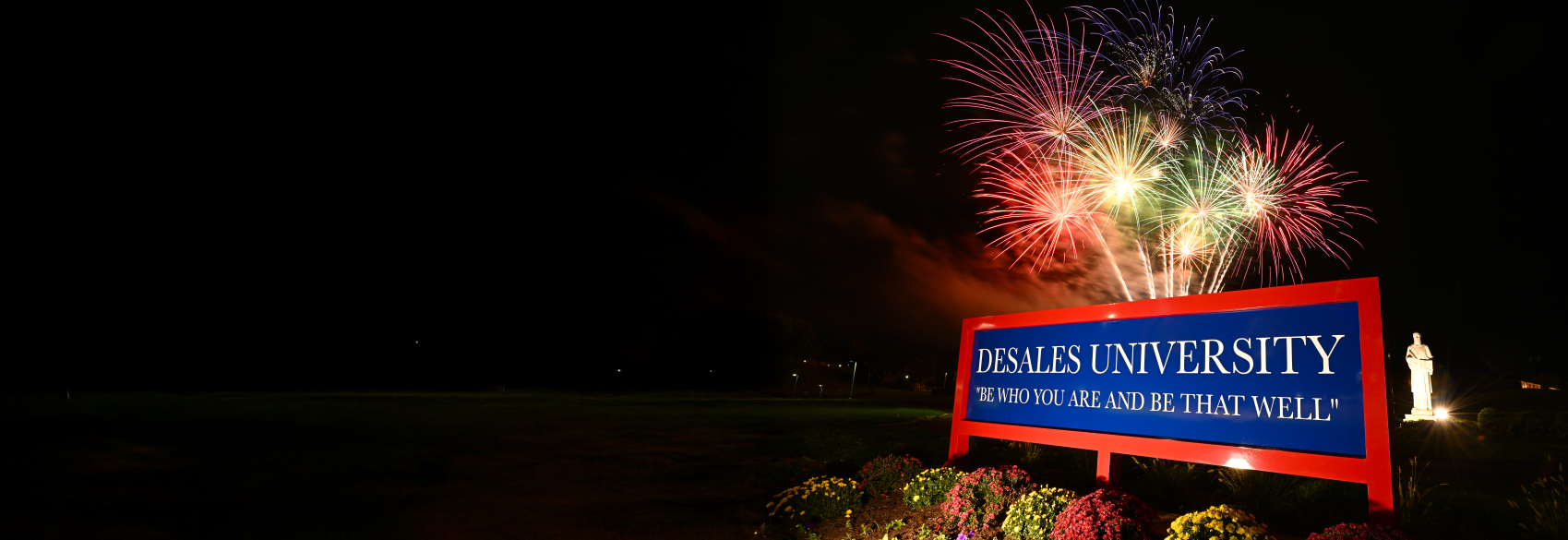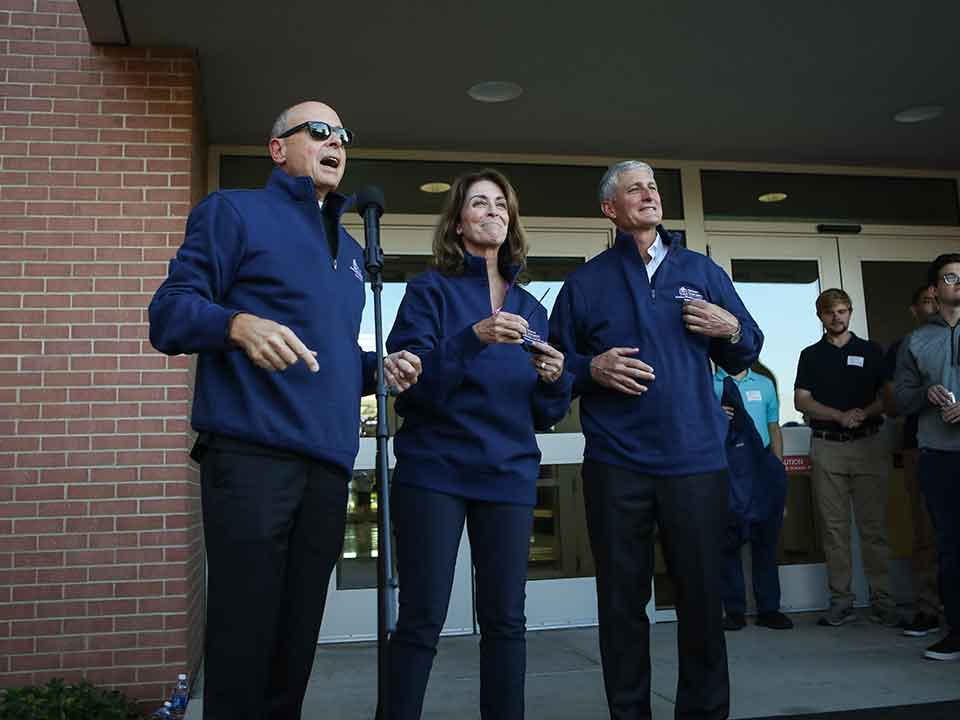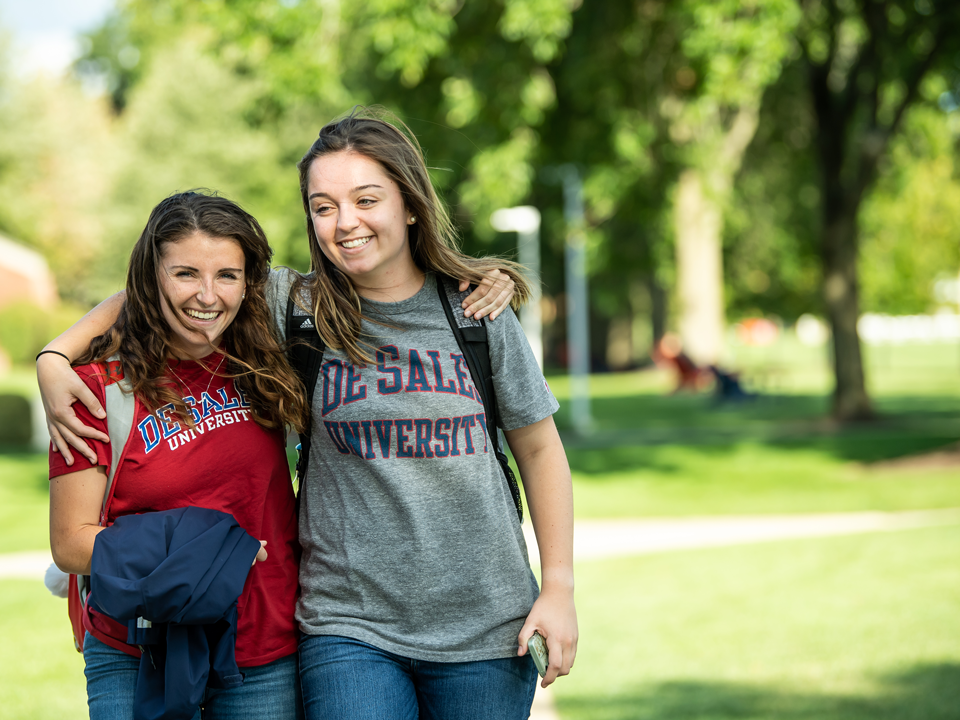Academic Excellence & Innovation
Transformative learning and teaching are key to the success of DeSales University, where wisdom is one of our core values. Strong relationships between students, faculty, and staff support learning, research, and personal and professional growth. By linking the Catholic intellectual tradition with new technology, creative teaching, and fresh ideas, our academic programs are preparing students for the challenges they will face in their careers and lives.
These five goals work together to create an academic environment where the Catholic tradition encourages learning, where technology is used in ethical ways, and where teamwork and innovation help students become wise leaders in a changing world. Our focus on academic excellence stays true to our mission while using the tools needed for modern learning.
Build a Future-Ready Academic Portfolio
We are reviewing all of our programs to make sure they are high-quality, relevant, and sustainable. By looking at both academic and financial data, we will decide which programs should be improved, combined, or phased out, and where we should introduce new programs that match today’s workforce needs. By Year 3, we expect to see clear progress in student retention, graduation rates, and overall cost efficiency across all programs.
Integrate the Catholic Intellectual Tradition Across the Curriculum
The Catholic intellectual tradition will be a clear and active part of our Connections Curriculum. We are linking its core themes to our student learning outcomes and course objectives and creating a formal way to identify courses that include these elements. This ensures students take classes that intentionally connect faith and learning, with yearly assessments to confirm these themes are being taught and genuinely felt in the student experience.
Prepare Every Graduate to Use AI Ethically, Responsibly, and Creatively
Artificial intelligence literacy and responsible use will be built into every program. We are introducing two micro-credentials—AI Literacy for students and Responsible AI Teaching for faculty. Institution-wide and program-specific AI learning outcomes will guide this work, supported by workshops, forums, and case-based modules on AI ethics and real-world applications. Standardized syllabus language will also provide consistent expectations for appropriate AI use.
Enable Efficiency, Collaboration, and Innovation in Our New College Structure
Our updated academic structure creates more efficient workflows and shared services, reducing administrative burden and allowing more time for teaching, research, and student support. We are expanding interdisciplinary work through team-taught courses, shared modules, joint events, and external partnerships. Each college and school will propose new academic initiatives every semester, and experiential learning models will be implemented across all programs by 2027.
Invest in Faculty Development and Scholarship
We are expanding professional development to strengthen both teaching and research. On-campus workshops, seminars, and training will grow in areas such as pedagogy, technology, and assessment, while faculty will have greater access to external development opportunities and seed funds for scholarship. Faculty development funding will increase 10–15% each year, and we aim for a 50% increase in external funding applications by Year 3.






